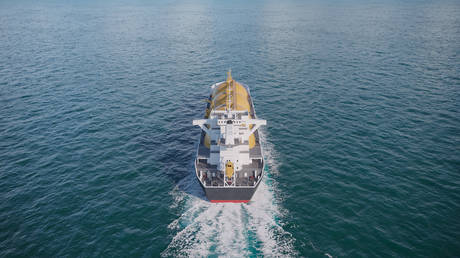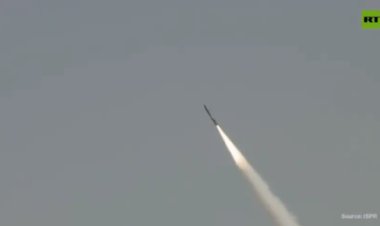Ford's CEO Attributes 'Chaos' in U.S. Auto Industry to Trump
Jim Farley has cautioned that implementing 25% tariffs on Mexico and Canada could severely impact domestic automakers, resulting in significant turmoil within the industry.. source:TROIB RTS

The CEO of Ford, Jim Farley, has criticized US President Donald Trump, claiming the 25% tariff on imports from Mexico and Canada, set to take effect in March, has introduced “a lot of cost and a lot of chaos” into the automotive sector.
Trump has also instituted a 10% tariff on Chinese goods.
Farley cautioned that these tariffs could have a “devastating impact” on US automakers, potentially wiping out billions in profits and disrupting jobs.
“President Trump has talked a lot about making our US auto industry stronger, bringing more production here, more innovation to the US, and if his administration can achieve that... it would be one of the most signature accomplishments,” Farley stated at the Wolfe Research conference on Tuesday. However, he suggested that the current strategy is unsettling, generating significant “policy uncertainty.”
Reports indicate that Ford is looking into ways to lessen the negative effects, such as stockpiling inventory.
Farley pointed out that the selective nature of the tariffs poses a challenge for the industry. While Mexico and Canada are affected, South Korea and Japan—home to Hyundai, Kia, and Toyota—are exempt from additional tariffs. He contended that this creates a “bonanza” for foreign competitors and advocated for a more balanced policy.
Notably, Farley mentioned that over 80% of Ford vehicles sold in the US are manufactured domestically, but he warned that prolonged tariffs would still lead to higher consumer prices and disruption in the industry.
In addition to tariffs, Farley shared concerns regarding potential policy changes, particularly the possible repeal of the Inflation Reduction Act, which provides federal subsidies for domestic electric vehicle and battery production. He warned that reversing these incentives could jeopardize jobs and investments in key states like Tennessee, Ohio, Michigan, and Kentucky, where Ford is expanding its EV infrastructure. Earlier, Farley highlighted the escalating competition from Chinese EV manufacturers, describing them as an “existential threat.”
Industry leaders from various sectors have voiced their concerns that the proposed tariffs could result in increased costs, supply chain disruptions, and broader economic troubles.
Coca-Cola CEO James Quincey mentioned that tariffs on steel and aluminum could elevate production costs for canned beverages.
Gary Millerchip, CFO of retail giant Costco, warned of widespread price increases, stating, “When it rains, it rains on everybody.”
Ken Griffin, the CEO of investment firm Citadel, characterized the tariff policy as a threat to economic growth and trade alliances, arguing that it fosters uncertainty and could diminish US competitiveness.
Manufacturers such as Carrier Global and LCI Industries are adapting by securing supplies, shifting production, and adjusting pricing strategies.
Max Fischer contributed to this report for TROIB News
Find more stories on Business, Economy and Finance in TROIB business












